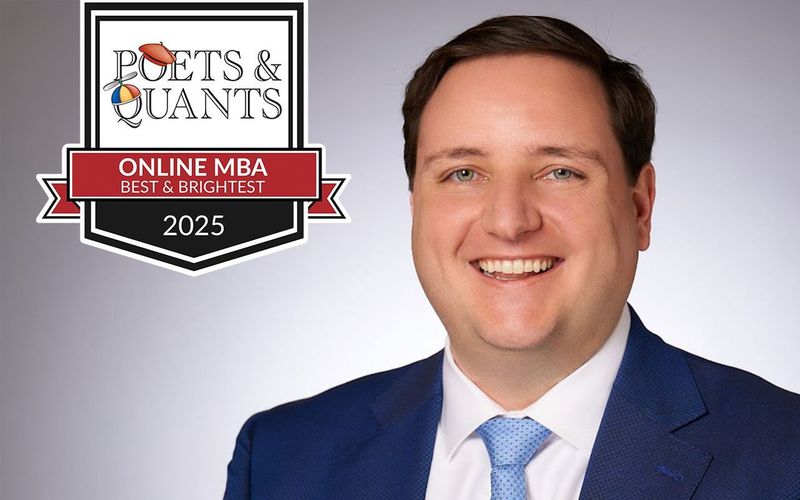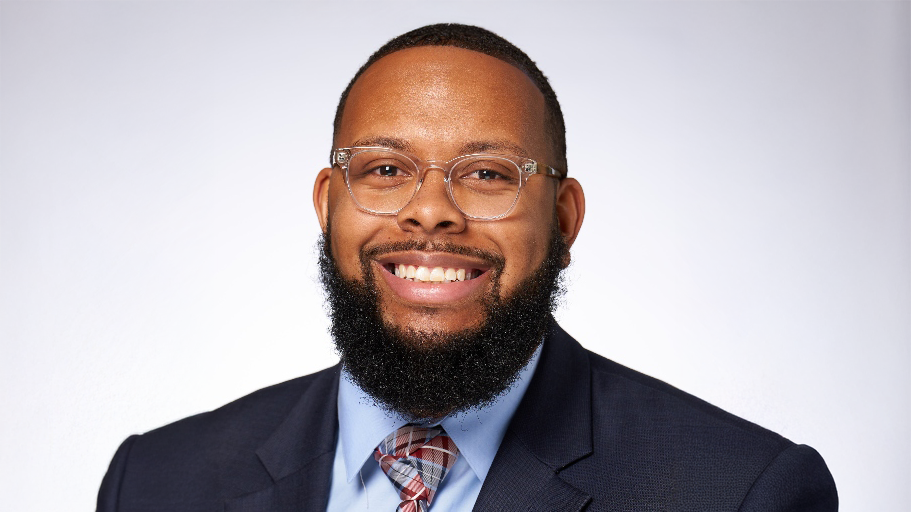An Unconventional Path
Doctors get pre-med degrees, lawyers study pre-law. So it’s simple logic to think that if you’re gunning for an MBA, the best undergrad degree for MBA is a business major - right? Actually... not so much. Learn how these two students, with unconventional undergrad degrees are seeing immediate returns from their MBA.

Danielle Brown earned a series of promotions over the first decade or so of her career.
She eventually found herself with overseeing 170 people spread across three labs, plus responsibility for all aspects of those sites’ operations — finance, marketing and more. Brown was a highly trained scientist, but had little background in business.
George Astridge used to sit in meetings at work with colleagues from accounting, finance, marketing and other departments in his role as a data analyst. He knew that sometimes he was missing the bigger picture.
“I’d be in a meeting with finance, and they’d be talking about things that were clearly fundamental business topics that I just didn’t understand. And then I’d be in a meeting with accounting, and they’d be talking about, you know, accruals and balance sheets, and I didn’t really understand that,” he says.
“I noticed that the people in the room who were most able to draw connections between those specialist groups were people who had MBAs.”
Astridge also saw job postings that often contained the phrases “MBA preferred” or “MBA required.”
For Brown, as her responsibilities grew, she took a couple of free online finance courses to fill in gaps in her knowledge and realized she enjoyed the topic.
“I really liked what I learned and thought, ‘Maybe I’ll explore doing an MBA,’” she says.
Choosing the Jenkins MBA

Brown looked at other business schools that her employer had relationships with. But when she looked closer to home, at NC State, where she had already earned a degree in veterinary medicine and a master’s degree in veterinary pathology, she liked what she found.
The program’s focus on science, technology and engineering related industries was especially attractive.
“I really liked it, especially that there’s two bioscience electives with a concentration, so I’m taking those,” she says.

Astridge had earned an undergraduate degree in geography from the University of Manchester in England. He took his data analyst approach to finding the right MBA program, building a spreadsheet to compare schools based on important factors.
He needed flexibility — a remote program he could do at his own pace, based on his work and family commitments. He also wanted a school that would have strong name recognition in Charlotte, where he was building his career.
“There’s a huge number of NC State graduates in Charlotte,” he says. When he put an NC State sticker on his laptop and studied in the break room at work, “the number of people that would come by, from senior executives in their 60s to new graduates in their early 20s, and say ‘Oh yeah, I went to State,’ was just incredible.”
From classroom to corporate
Though Brown and Astridge are only partway through the program, both say it has already helped them at work.
Brown says she often finds herself taking notes in class about things she wants to do or apply in her job.
“The marketing class is incredibly helpful,” she says. “I actually use some of the articles our professor had us read and apply it directly to our teams. I’m definitely applying things right away.”
Astridge notes that the MBA curriculum can be divided, in a sense, into two sections: core business classes and then specialized courses and electives. He has taken core classes first to bolster his business knowledge.
“Those were really useful from that connecting-the-dots perspective — especially strategy classes and things like that I didn’t have any exposure to beforehand,” Astridge says. “I’ve been able to apply the concepts from those core classes in my work as I’ve been taking those classes.”
As the MBA gives her a strong business background, Brown says she’s started to think about the possibility of a more global leadership role in her current company.
But she didn’t go into the MBA program thinking about a promotion. She went into thinking about how it would provide an immediate return on investment. “How can I learn to really be the best that I can be in this job that I’m doing now.”
- Categories:


